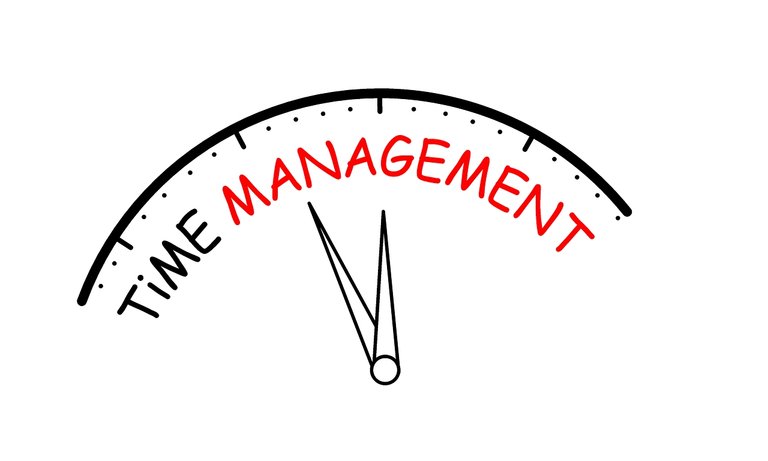Greetings everyone. Welcome ro my blog. Ill be writing on managing time and mastering time management as an entrepreneur.
We learn the hard way that time management is not another element of endemically entrepreneurial reality but a sine qua non. Given many things to do, many responsibilities, and many times the problem arises of not knowing how to efficiently manage the limited time one has to do all that is expected of them not to talk of the stresses that come with the job. Here is a one stop center on how business owners can manage their time well and take their businesses to the next level.
1. Prioritize Like a Pro
An astute model of structuring a work day is to know that priority planning is the fundamental of time management. First of all, make an attempt to estimate which activities you consider to be critical. It is necessary to sort out tasks according to the Eisenhower Matrix, which categorises the tasks as urgent and important and non-urgent and non-important. Focus more of the efforts on that area that has the highest probability of impacting on the attainment of long-term goals and objectives.
2. Create a Structured Schedule
To be able to manage time properly, one has to have a structure on how he or she is going to divide the time in a day. Employ the use of items such as calendars, be it digital, or a time planner for the day, week, or month. Plan a definite time period for different kinds of work and try to adhere to the set time frame to the optimum extent in order to avoid the loss of concentration.
3. Set Clear Goals
Be sure to have specific and measurable objectives based on which you will be working. The most effective ways of getting Started: when one has a long-term goal, he or she should come up with sub-goals that are measurable and should also have timelines. Apart from breaking big projects into smaller ones thus making them more manageable, this also comes in handy when one need to track progress hence motivation.
4. Adopt Time-Blocking Techniques
Another kind of time management tool is the time blocking or the act of scheduling a special time for the given job. This method minimizes the case of ‘switching’ between different tasks, therefore, increasing focus on the relevant task. Other group staff have reported being able to accomplish much more in far less time as a result of the fact that they are able to put a particular set of tasks or projects into nice neat blocks of time.
5. Implement the Pomodoro Technique
The Pomodoro Technique is a productivity enhancement system which separates work into periods of time normally 25-minutes in length and separated by short breaks, preferably around five-minutes. This means that depending with the program that is being worked on, 25 minutes of work is followed by a break of 5 minutes. Finally, if one has completed four of such cycles, then it is high time to take a longer break. It also helps in keeping the workforce active and to avoid cases of workers getting bored and hence producing low results.
6. Delegate and Outsource
Being an entrepreneur, one is usually a jack of all trades but attempting to perform all the tasks on your own proves counterproductive. List activities that can be handed over to other people. Whether one’s work involves a lot of paperwork, designing, or scheduling work on social media, such work saves the owner time which can be utilized in more impactful endeavors in a business.
7. Limit Distractions
Distractions are time thieves. Engage the workforce in producing a ergonomically friendly work environment. This could mean restrictive interactions with co-workers or limiting interactions with relatives, blocking certain websites especially social networks or disabling notifications on your devices.
8. Use Technology Wisely
Maximise the use of technological tools in order to reduce costs. Organizational and Productivity tools and apps includes task managers, project management software, and automation tools. But use of technology should not become a vice in itself meaning that one should not spend most of their time on the devices.
9. Review and Reflect
Always, take time and evaluate your time management measures then note down what is effective and what isn’t. This is especially useful in dealing with complex tasks where planning and control might often have to be changed to accommodate unexpected problems. People need to be committed to keep improving their time management skills.
10. Prioritize Self-Care
May sounded efficient as a concept and that efficiency is not only limited to the work plane but also to balancing the life – work ratio. Do not forget to schedule time for breaks, fitness, and self-employment. There is no doubt that focusing on how you feel about yourself can help you to have a long and fruitful working career without bum out.
All in all, time management is a skill that calls for prioritization, planning, and exercise of self-discipline so as to achieve the planned goals. Through these approaches, the businessmen can work in the most effective way and acquire their objectives in the shortest time and with the least interference with their personal lives. Remember that time management is not a matter of working longer hours, but intelligently.
Stay blessed 🙏
Your favorite driver and teacher
@etteuwad

Spanish
Saludos a todos. Bienvenidos a mi blog. Voy a escribir sobre la gestión del tiempo y el dominio de la gestión del tiempo como empresario.
Aprendemos por las malas que la gestión del tiempo no es un elemento más de la realidad endémicamente empresarial, sino una condición sine qua non. Hay muchas cosas que hacer, muchas responsabilidades, y muchas veces surge el problema de no saber gestionar eficazmente el tiempo limitado que uno tiene para hacer todo lo que se espera de él, por no hablar del estrés que conlleva el trabajo. Aquí está un centro de una parada en cómo los dueños de negocios pueden administrar bien su tiempo y llevar sus negocios al siguiente nivel.
1. **Priorizar como un profesional
Un modelo astuto de estructurar una jornada laboral es saber que la planificación de prioridades es lo fundamental de la gestión del tiempo. En primer lugar, intente estimar qué actividades considera críticas. Es necesario ordenar las tareas según la Matriz de Eisenhower, que clasifica las tareas en urgentes e importantes y no urgentes y no importantes. Concentre más los esfuerzos en el área que tenga más probabilidades de influir en la consecución de las metas y objetivos a largo plazo.
2. Crear un horario estructurado
Para poder gestionar el tiempo adecuadamente, hay que tener una estructura sobre cómo se va a dividir el tiempo en un día. Utiliza elementos como calendarios, ya sean digitales, o un planificador del tiempo para el día, la semana o el mes. Planifique un periodo de tiempo definido para los distintos tipos de trabajo e intente respetar al máximo el plazo establecido para evitar la pérdida de concentración.
3. Establezca objetivos claros
Asegúrese de tener objetivos específicos y mensurables en función de los cuales trabajará. Cuando uno tiene un objetivo a largo plazo, debe plantearse subobjetivos que sean medibles y que también tengan plazos. Además de dividir los grandes proyectos en otros más pequeños y hacerlos así más manejables, esto también resulta útil cuando se necesita hacer un seguimiento del progreso y, por tanto, de la motivación.
4. Adoptar técnicas de bloqueo del tiempo
Otro tipo de herramienta de gestión del tiempo es el bloqueo del tiempo o el acto de programar un tiempo especial para un trabajo determinado. Este método minimiza el caso de "cambiar" entre diferentes tareas, por lo tanto, aumenta la concentración en la tarea relevante. El personal de otros grupos ha informado de que es capaz de lograr mucho más en mucho menos tiempo como resultado del hecho de que son capaces de poner un conjunto particular de tareas o proyectos en bloques de tiempo bien ordenados.
5. Implementar la técnica Pomodoro.
La Técnica Pomodoro es un sistema de mejora de la productividad que separa el trabajo en periodos de tiempo que suelen durar 25 minutos, separados por breves descansos, preferiblemente de unos cinco minutos. Esto significa que, dependiendo del programa en el que se esté trabajando, a 25 minutos de trabajo le sigue una pausa de 5 minutos. Por último, si se han completado cuatro de estos ciclos, es el momento de hacer una pausa más larga. También ayuda a mantener activa la mano de obra y a evitar que los trabajadores se aburran y, por tanto, produzcan pocos resultados.
6. **Delegar y subcontratar
Como empresario, uno suele ser un experto en todo, pero intentar realizar todas las tareas por su cuenta resulta contraproducente. Enumere las actividades que puede delegar en otras personas. Si el trabajo de uno implica mucho papeleo, diseño o programación de trabajo en las redes sociales, este tipo de trabajo ahorra tiempo al propietario que puede ser utilizado en esfuerzos más impactantes en un negocio.
7. Limite las distracciones
Las distracciones son ladrones de tiempo. Involucre a los trabajadores en la creación de un entorno de trabajo ergonómico. Esto podría significar restringir las interacciones con los compañeros de trabajo o limitar las interacciones con los familiares, bloquear determinados sitios web, especialmente las redes sociales, o desactivar las notificaciones en sus dispositivos.
8. Utilice la tecnología con prudencia
Maximiza el uso de herramientas tecnológicas para reducir costes. Las herramientas y aplicaciones de organización y productividad incluyen gestores de tareas, software de gestión de proyectos y herramientas de automatización. Pero el uso de la tecnología no debe convertirse en un vicio en sí mismo, lo que significa que uno no debe pasar la mayor parte de su tiempo en los dispositivos.
9. Revisar y reflexionar
Tómese siempre el tiempo necesario para evaluar sus medidas de gestión del tiempo y anote lo que resulta eficaz y lo que no. Esto es especialmente útil cuando se trata de tareas complejas en las que a menudo hay que cambiar la planificación y el control para adaptarse a problemas inesperados. Las personas deben comprometerse a seguir mejorando sus habilidades de gestión del tiempo.
10. Priorizar el autocuidado
Que suene eficiente como concepto y que la eficiencia no se limite sólo al plano laboral sino también a equilibrar la relación vida - trabajo. No te olvides de programar tiempo para los descansos, la forma física y el trabajo autónomo. No hay duda de que centrarse en cómo te sientes contigo mismo puede ayudarte a tener una larga y fructífera carrera laboral sin desfallecer.
En definitiva, la gestión del tiempo es una habilidad que exige priorizar, planificar y ejercer la autodisciplina para alcanzar los objetivos previstos. Mediante estos planteamientos, los empresarios pueden trabajar de la forma más eficaz y adquirir sus objetivos en el menor tiempo posible y con la menor interferencia con su vida personal. Recuerda que la gestión del tiempo no es cuestión de trabajar más horas, sino de forma inteligente.
Sigue siendo bendecido 🙏
Tu conductor y maestro favorito
@etteuwad




